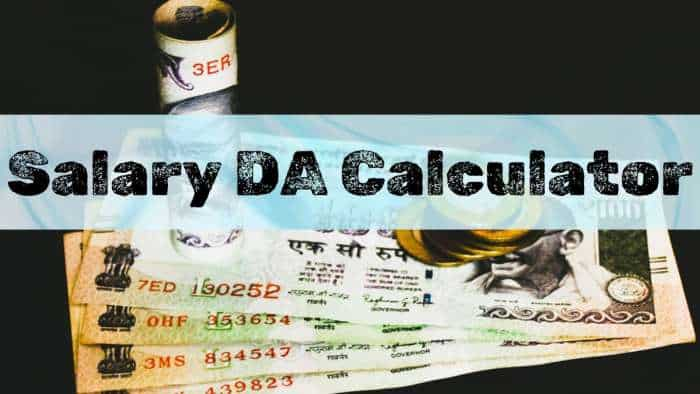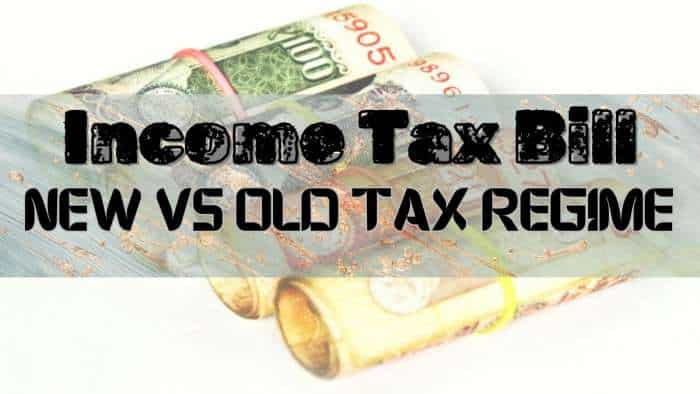ITR filing: How mistakes in filling deduction and exemption columns in income tax return form can cost you dear
The Income Tax Department has warned sternly against reporting inflated income or false deductions for the Assessment Year (AY) 2023-24. These actions can draw significant penalties, including an annual interest charge of 12 per cent, penalties of up to twice the amount of taxes, and even criminal prosecution.
)
The deadline to file Income Tax Return for Financial Year 2022-23 (AY 2023-24) is approaching and the taxpayers should complete the ITR filing process before the due date to avoid penalty. While filing ITR it is important to provide genuine information about your income and proof of tax saving investments. One wrong information such as an error in the deduction and exemption sections of the ITR form, can lead to grave financial and legal consequences.
The deadline for filing the income tax return for the individual taxpayers whose accounts don’t need an audit is July 31, 2023.
Avoid hiding information in ITR filing
The crucial nature of accurate income reporting and justified deduction or exemption claims in the ITR filing process is not to be downplayed. Seasoned tax professionals underscore the perils of declaring deductions without concrete evidence of transactions and necessary proofs. A vigilant taxpayer stays clear of potential tax evasion quagmires, ensuring that their reported income is consistent with Form 16.
The Income Tax Department has warned sternly against reporting inflated income or false deductions for the Assessment Year (AY) 2023-24. These actions can draw significant penalties, including an annual interest charge of 12 per cent, penalties of up to twice the amount of taxes, and even criminal prosecution.
Avoid these common errors in ITR filing
There are certain tripwires in the ITR filing process, including inaccurate tax deduction claims, incorrect use of exemptions, non-disclosure of losses, and failure to validate banking records.
A surprisingly frequent misstep is the selection of the wrong ITR form. Other common oversights are incorrect reporting of the assessment year, non-disclosure of all income sources, and errors in income and deduction calculations.
Choosing the correct ITR form that matches one's income sources is pivotal. Non-compliance with the tax rules can lead to invalid returns, penalties, and even denial of refunds.
Overpayment of income tax
Filing errors don't just put taxpayers at risk of penalties and legal complications, they can also inadvertently lead to overpayment of taxes. If a taxpayer fails to claim all eligible deductions or remains unaware of certain lesser-known deductions, they might end up with an artificially inflated taxable income.
Many taxpayers neglect to claim deductions such as medical bills for uninsured parents (Section 80D) or home loan deductions (Sections 24 and 80EE), resulting in a higher tax obligation. Misinterpretation of tax laws or oversight of key tax code sections can also inadvertently lead to an overpayment of taxes.
How to rectify ITR filing errors?
Nobody's perfect, and errors do happen. The silver lining here is that many mistakes made during ITR filing can be rectified if identified promptly. The Income Tax Department provides the facility for taxpayers to file a revised return, correcting any inaccuracies or omissions in the original filing.
Taxpayers are advised to regularly review their filed ITR for discrepancies and submit a revised return that rectifies any inaccuracies. This includes ensuring accuracy in all details, from personal information to income and claimed deductions.
Form 26AS, a comprehensive tax statement, is an invaluable tool to avoid discrepancies. If the path through the tax jungle seems too convoluted, it's always a good idea to seek the guidance of a tax professional or chartered accountant to help correct any complex errors, ensuring the accuracy of the revised return.
Get Latest Business News, Stock Market Updates and Videos; Check your tax outgo through Income Tax Calculator and save money through our Personal Finance coverage. Check Business Breaking News Live on Zee Business Twitter and Facebook. Subscribe on YouTube.
RECOMMENDED STORIES

Dearness Allowance (DA) Calculations: Is your basic monthly salary Rs 25,500, Rs 35,400, or Rs 53,100? Know how much DA will you get at different rates

Power of Compounding: How long it will take to build Rs 8 crore corpus with Rs 7,000, Rs 11,000 and Rs 16,000 monthly investments

Income Tax Calculations: What will be your tax liability if your salary is Rs 8 lakh, Rs 14 lakh, Rs 20 lakh, and Rs 26 lakh?

Monthly Pension Calculations: Is your basic pension Rs 25,000, Rs 35,000, or Rs 50,000? Know what can be your total pension as per latest DR rates
10:06 AM IST










 Income tax return filer base up 2.2 times in 10 years, 5 times growth in Rs 50 lakh-plus income category: Sources
Income tax return filer base up 2.2 times in 10 years, 5 times growth in Rs 50 lakh-plus income category: Sources  ITR Filing Deadline Extended: I-T Dept extended the last date of income tax filing by 15 days
ITR Filing Deadline Extended: I-T Dept extended the last date of income tax filing by 15 days Yet to e-verify your ITR? Don't miss today's deadline, or else you have to pay this much penalty; know how to e-verify ITR
Yet to e-verify your ITR? Don't miss today's deadline, or else you have to pay this much penalty; know how to e-verify ITR Missed ITR filing deadline? Essential things to know about belated income tax return
Missed ITR filing deadline? Essential things to know about belated income tax return